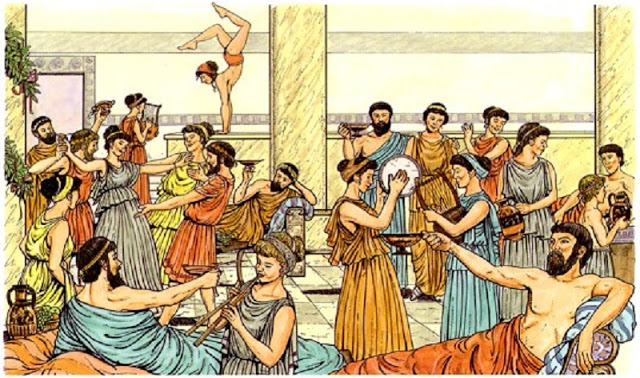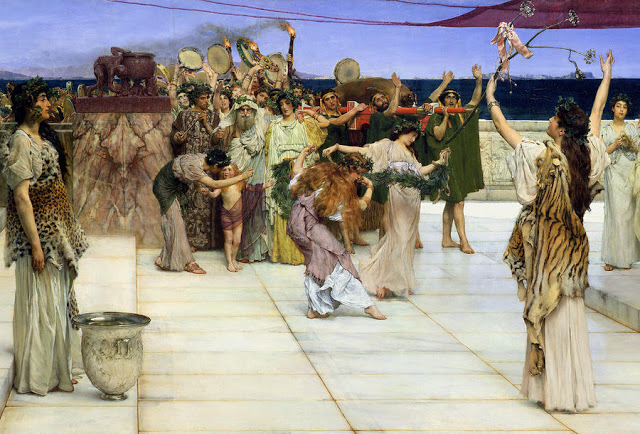Several festivals were held in his honor in Ancient Greece
Dionysia, Haloa, Ascolia, and Lenaia were four separate ancient Greek festivals honoring Dionysus, the God of Wine and Festivity. The most ancient of them all is "Rural Dionysia," which took place in the Attic month of Poseideōn (late December). This celebration commemorated the planting of vines, which was accompanied by singing, dancing, and wine consumption. This celebration led to the creation of the "City Dionysia" festival (perhaps 6th century BCE), which was held three months after the rural Dionysia and was likely to commemorate the end of winter and the harvesting of the year's crops. Between and around the two Dionysia celebrations, smaller agrarian festivals such as Anthesteria, Lenaia, Ascolia, and Haloa were celebrated.
- The Lenaia festival took place in January in Athens and featured processions, singing, and unique rites performed by women.
- In the month of Anthesterin (January/February), Anthesteria was held near the full moon.
- Ascolia was more of a religious feast in which the goat was sacrificed and games were played in honor of God.
- Haloa was an agrarian festival held after the first harvest in the month of Poseiden (December/January). The event was largely observed by women and was devoted to Demeter, Dionysus, and Poseidon.












